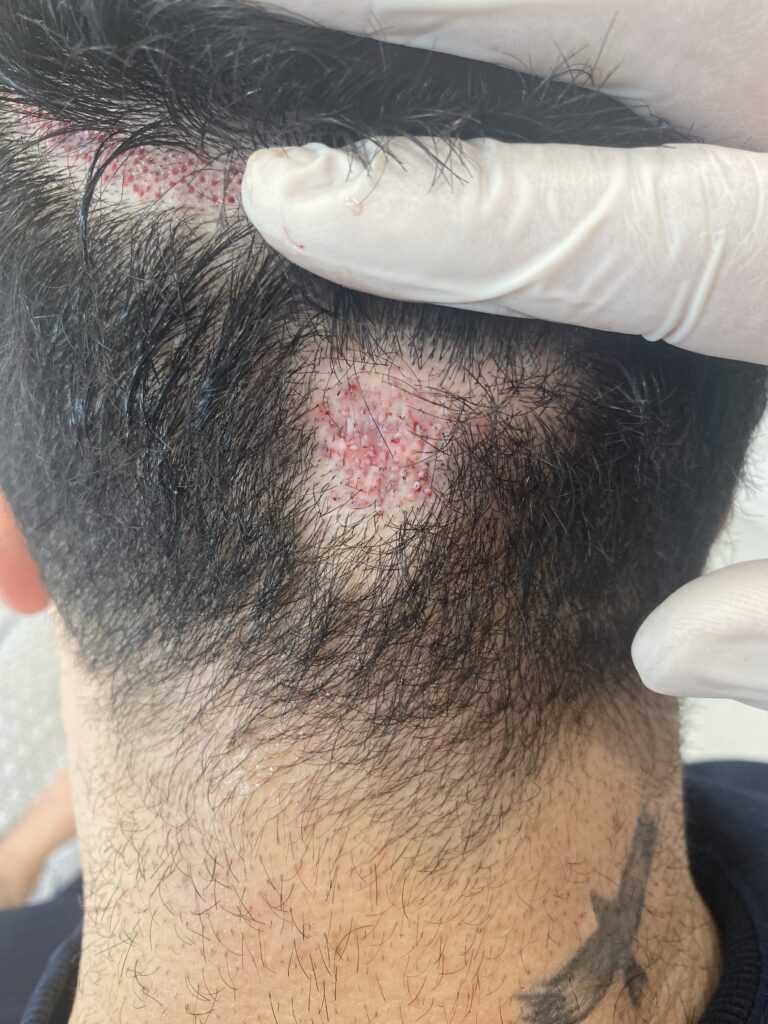Hair Transplant in Scarring Alopecia: Is It a Viable Solution For Hair Loss?
Understanding Scarring Alopecia
Scarring alopecia, also known as cicatricial alopecia, is a rare type of hair loss caused by inflammation that destroys hair follicles and replaces them with scar tissue. This condition leads to permanent hair loss and affects both men and women. Unlike androgenetic alopecia, which is characterized by gradual thinning, scarring alopecia results in irreversible damage to the scalp, making hair restoration more complex.
Types of Scarring Alopecia
There are two main types of scarring alopecia, and they necessitate different approaches when considering a hair transplant:
Primary Cicatricial Alopecia
Primary Cicatricial Alopecia occurs when inflammation directly targets the hair follicles, leading to irreversible damage. Conditions such as lichen planopilaris, frontal fibrosing alopecia, and discoid lupus erythematosus fall under this category.
Because the condition is inflammatory, a hair transplant can only be considered once the disease has been stabilized for at least 1-2 years.
Secondary Cicatricial Alopecia
Secondary Cicatricial Alopecia results from external factors like burns, trauma, infections, or surgical scars, rather than an autoimmune response.
Since the follicular destruction is not caused by ongoing inflammation, hair transplants tend to have a higher success rate in these cases
For more details, please check our pages on primary cicatricial alopecia and secondary cicatricial alopecia

Can a Hair Transplant Work for Scarring Alopecia?
A hair transplant in scarring alopecia is possible but requires careful evaluation. Unlike traditionalFUE hair transplant or DHI hair transplant, where healthy follicles are implanted
into a normal scalp, the affected area in scarring alopecia has reduced blood supply and altered skin texture.
This makes the success rate lower than in cases of male pattern baldness or female hair loss.
Key Factors for a Successful Hair Transplant in Scarring Alopecia
For a hair transplant in scarring alopecia to be effective, the following conditions should be met:
- Disease Stability: The condition must be inactive for at least 1-2 years, with no signs of inflammation or further hair loss.
- Healthy Donor Area: The patient must have a sufficient donor hair supply for transplantation.
- Good Blood Circulation: The affected scalp should have enough vascular support to nourish the newly implanted grafts.
- Expert Surgical Technique: An experienced hair transplant surgeon is crucial for ensuring proper implantation and graft survival.
Best Hair Transplant Techniques for Scarring Alopecia
Follicular Unit Extraction (FUE)
In FUE hair transplant, individual follicular units are extracted from the donor area and implanted into the scarred scalp. This technique is preferred for small to medium-sized scars.
Direct Hair Implantation (DHI)
DHI hair transplant uses a specialized implanter pen to place hair follicles directly into the recipient area. This method minimizes trauma and may improve graft survival in scarred tissue.
Scalp Micropigmentation (SMP) with Hair Transplant
Some patients may benefit from combining SMP with a hair transplant to create a fuller appearance in areas where hair density remains low.
Success Rates and Expected Results Of Hair Transplants in Scarring Alopecia
The success of a hair transplant in scarring alopecia varies depending on:
- The severity of the scarring
- The stability of the condition
- The skill of the hair transplant surgeon
In some cases, multiple sessions may be needed to achieve satisfactory density.
Patients should have realistic expectations, as hair regrowth may be lower compared to patients undergoing a hair transplant in Turkey for common baldness.
Choosing the Right Hair Transplant Clinic For Scarring Alopecia
Selecting a reputable hair transplant clinic in Turkey or another top destination is vital when it comes to cicatricial/scarring alopecia as it requires expertise and specialized techniques.
Look for:
- Board-certified hair transplant surgeons
- Clinics with expertise in treating scarring alopecia
- Proven patient results and high success rates
A hair transplant in scarring alopecia is a complex but possible solution for restoring lost hair. If you’re considering this procedure, consult a skilled hair restoration specialist to determine if you’re a suitable candidate.
The doctors at Civas&Akpınar Hair Transplant Turkey have done extensive research on the subject and are among the best hair restoration specialists when it comes to performing hair transplants in scarring alopecia. Their expertise ensures a meticulous approach tailored to each patient’s unique condition, providing optimal results in even the most challenging cases.

